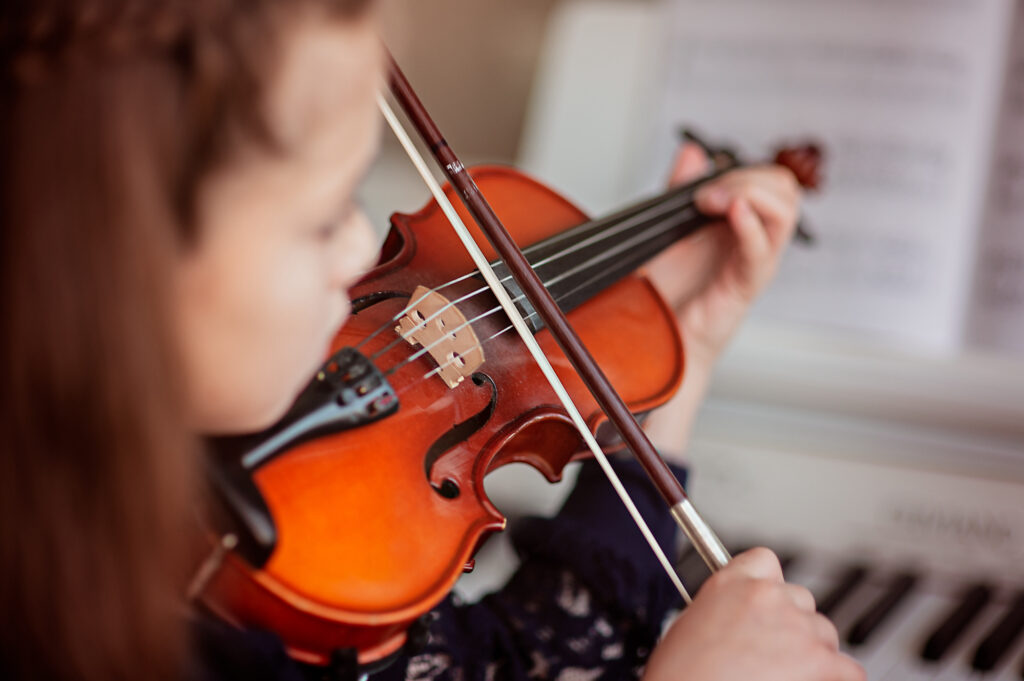In a world where STEM subjects dominate the educational landscape, it’s important not to overlook the transformative power of music education. Beyond its inherent artistic and emotional appeal, music has been found to have a profound impact on brain development and cognitive abilities. 1 At A Child’s Song, our commitment to providing quality music education goes hand in hand with the scientific evidence that supports the positive influence of music on the developing mind.
The Cognitive Symphony of Music:
Research has shown that music engages multiple regions of the brain simultaneously, creating a cognitive symphony of neural connections. Playing an instrument or singing stimulates areas responsible for motor skills, auditory processing, and memory. Studies have even found that musicians exhibit larger brain volume in certain regions associated with auditory processing and executive functions when compared to non-musicians. 2
One such study conducted at Northwestern University in Illinois revealed that music training improves the neural processing of speech, leading to enhanced language skills in children. 3 This finding underscores the broader cognitive benefits of music education, as language proficiency is crucial for academic success across various subjects.
The Mozart Effect and Beyond:
You may have heard of the “Mozart Effect,” a popular concept suggesting that listening to classical music can temporarily boost intelligence. While the original research behind the Mozart Effect has faced some criticism, subsequent studies have expanded our understanding of the impact of music on cognitive abilities.
A study published in the journal “Nature” found that structured music lessons, as opposed to passive listening, significantly enhanced children’s cognitive skills and academic performance. 4 The researchers noted that music training improved not only musical abilities but also verbal intelligence, mathematical proficiency, and executive functions such as problem-solving and attention.
A Growing Body of Evidence:
The scientific community has continued to explore the relationship between music education and brain development, yielding fascinating insights. A study from the University of Vermont discovered that children who receive music instruction exhibit stronger connections between brain regions responsible for executive functions. These findings suggest that music education can improve skills related to planning, decision-making, and self-control. 5
Furthermore, longitudinal studies have demonstrated the long-term effects of music education. A study published in the “Journal of Neuroscience” followed children who received music training for two years and found that they showed improved auditory and motor skills compared to their peers. The researchers also reported greater precision in distinguishing speech sounds—a skill crucial for language acquisition and communication. 6
